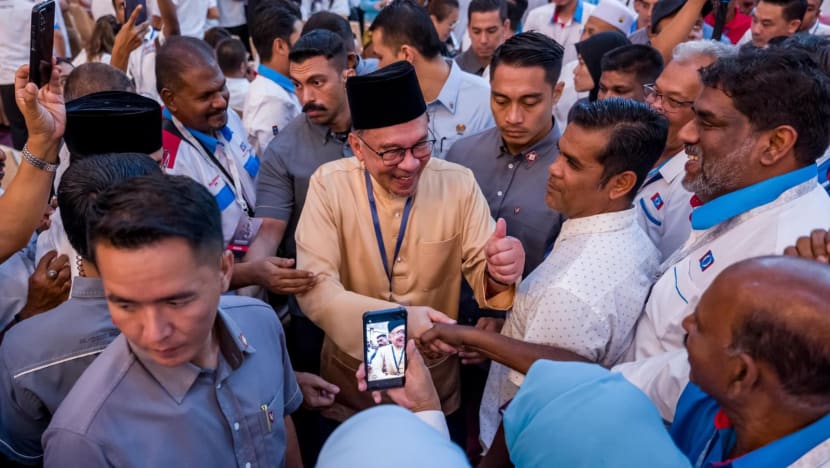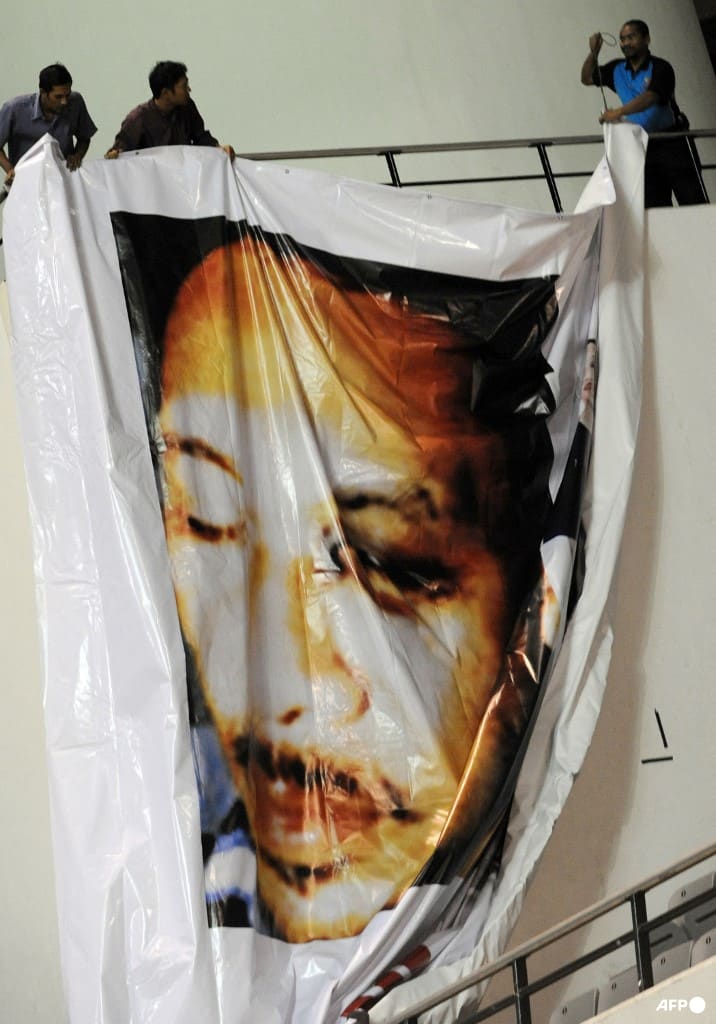Commentary: As Malaysian PM Anwar’s party turns 25, who could be his successor?
A post-Anwar world might be different, but it will not erase his quarter-of-a-century imprint on the party, says political analyst James Chai.

Malaysia Prime Minister Anwar Ibrahim at the PKR 25th Anniversary Special Convention at IDCC Shah Alam, Selangor on Apr 21, 2024. (Photo: Facebook/Anwar Ibrahim)

This audio is generated by an AI tool.
KUALA LUMPUR: As Malaysia Prime Minister Anwar Ibrahim’s People’s Justice Party (PKR) celebrates its silver jubilee in 2024, it can no longer claim to be a young party.
Although it will always be significantly younger than other mainstream parties - UMNO (77 years), PAS (72 years), DAP (58 years) - its stable electoral presence and governing experience at the federal and state level has earned PKR the right to be considered seriously.
PKR was born out of a major political crisis when its figurehead, Mr Anwar, was sacked as deputy prime minister in 1998 and jailed twice after. Crises never seemed to cease for PKR as the party was faced with arrests and detentions, violent clashes with authorities, party splits, and massive defections. “Crisis is PKR’s middle name,” one analyst said in 2021.
After its first breakthrough in the 2008 general election, when it won 31 seats, PKR became a mainstay contender, subsequently becoming leader of the unity government with Mr Anwar as prime minister in 2022. This makes the question of succession topical as it gives a sense of how the party and by extension, the country, will evolve.
POSITIONING ANWAR FOR A SECOND TERM
Interestingly, Mr Anwar has been PKR’s president for only six years out of the party’s 25-year life, as he was in and out of prison. For the most part, Mr Anwar was the party’s informal advisor and de facto leader, and his wife, Wan Azizah Wan Ismail, stood in his place for 19 years (1999-2018).
Prior to PKR’s 25th anniversary celebration on Sunday (Apr 21), long-time PKR member Hassan Karim brought up succession as a core issue of consideration as the party decides its next 25 years. Mr Anwar will also turn 80 by the next general election, assuming the term runs its maximum course.
To this, party leaders have often avoided directly answering, preferring to assure others that PKR has enough capable young leaders, in a party that has a life separate from any individual.
However, there may be other reasons why PKR chooses not to discuss this. First, it is non-strategic to do so as it would weaken its hand as a governing party.
As the leader of the unity government, PKR’s electoral chances heavily depend on its performance as government. And a government’s performance, especially a reforming one, hinges on continuity. That means for PKR to be successful in the next general election, it inevitably must position Mr Anwar as prime minister for a second term, as both a validation for its first and as a necessity for reforms to succeed. In other words, the need for governing continuity removes the question of succession within the party.
A CAN OF WORMS
Second, it is also potentially destabilising for PKR to openly contemplate succession. Any candidate alternative to Mr Anwar will only invite internal schisms and/or opportunistic pursuit by other allied parties - opening a can of worms.
Other than Mr Anwar, it’s unlikely that any other candidate would be accepted by all parties within the Pakatan Harapan coalition and the unity government. Mr Anwar’s prior government seniority, global networks, sacrificial legitimacy, accommodative leadership, charismatic personality, and Malay and Islamic credentials made him acceptable to most parties.
It was only Mr Anwar who could act as a glue for the ideologically opposites, PAS and DAP, to work together under the Pakatan Rakyat coalition (2008-2015), the first substantive coalition in Malaysian history which made critical electoral breakthroughs.
It was also he who stitched together once-warring factions to form the unity government under the King’s ordain. Mr Anwar’s successor might not possess the necessary seniority or respect to hold the coalition together at a tenuous time, leaving it vulnerable to the opposition.
Lastly, the theoretical question of succession must not be divorced from the emotive connection of PKR to Mr Anwar.
The party was formed because of the injustice inflicted on Mr Anwar, and the party’s “eye” logo came from Mr Anwar’s “black eye” during his detention in 1998.
Mr Anwar is seen as a symbol of sacrifice at PKR. His successor will only be successful if he/she manages the transition well, while preserving Mr Anwar’s legacy and larger-than-life personality. But it does not change the fact that it will always remain an emotive subject of discussion.

A NEW PHASE OF EVOLUTION
At PKR’s special convention, the party launched an organisation framework (POP25) and election preparation framework (KEMAS16), aimed at ensuring its governance and keeping Mr Anwar as prime minister for a second term.
This clearly sets aside the succession question for now. When the moment of succession comes, PKR will likely decide the way other mainstream parties do: Picking the candidate most accepted by party leaders, with the blessing of its predecessor.
The only thing we know is that the new leader who will take over from Mr Anwar will likely go through unprecedented experiences as the party enters a new phase of evolution: A contested presidency, the burdens of a governing party, leading a younger leadership, and managing new dynamics in the coalition.
A post-Anwar world might be different, but it will not erase Mr Anwar’s quarter-of-a-century imprint on the party.
James Chai is a political analyst, columnist and the author of Sang Kancil (Penguin Random House).


















